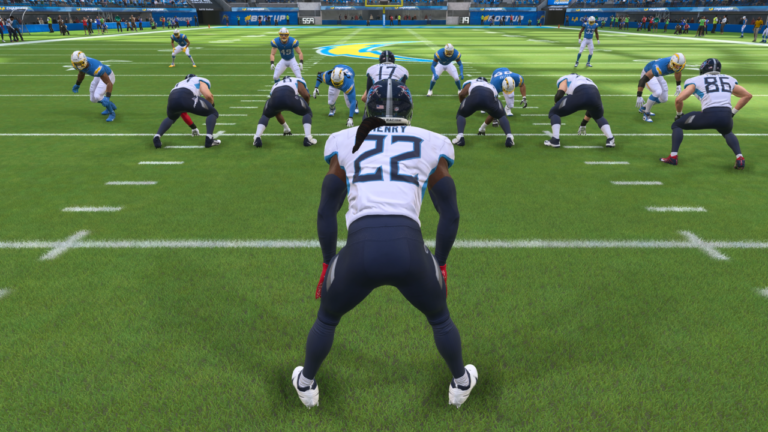Diablo 4: Vessel of Hatred Spiritborn Class Hands-On: Everything You Need to Know
It doesn’t take all that much to get me to dive back into Blizzard’s stellar ARPG, Diablo 4, which has had a fantastic run of seasonal content and updates in the year since it made its devilish debut. But after an extensive hands-on with its upcoming character class, the Spiritborn, I might be kissing my free time goodbye altogether. This jack of all trades impressively mixes up the Diablo ecosystem with its most customizable and varied class yet, opens up a whole new unexplored aspect of Diablo lore, and most importantly, lets you summon a giant spectral gorilla to Hulk-smash demons into pink giblets. By the end of my time exploring Vessel of Hatred’s spooky jungles and dark dungeons, I was ready to forsake my roguish ways and declare myself a Spiritborn main, and that’s no small feat.
A quick housekeeping note: my time playing Diablo IV: Vessel of Hatred was focused almost exclusively on the Spiritborn character class. After choosing my preferred Spiritborn warrior, I was dropped right into the action in the new region of Nahantu to craft my build and dismember everything in sight. Though all of the following things are in there, I didn’t see any story, meet any NPCs (aside from vendors), or get to check out the new hireable mercenaries feature. That said, my access to the Spiritborn class and all it offers was pretty exhaustive, so I’ll be focusing on that. Let’s dive in!
The Spiritborn are an entirely new class to the Diablo series, complete with their own lore that’s tied up in the ancient civilization of Nahantu – as seen in the Act 3 jungles of Diablo II – and the ethereal spirits with which they commune. Unlike the other Diablo IV classes, where you dive quite deep into a specific fantasy like tanking with the Barbarian or doing mad DPS with the Rogue, the Spiritborn is much more customizable and varied, thanks to the four guardian spirits you can choose to build into. Those four spirits are: the eagle, which focuses on mobility, evasion, and lightning damage; the gorilla, which is all about survivability and physical damage; the jaguar, which is the king of DPS, attack speed, and fire damage; and my personal favorite, the centipede, which uses poison, debuffs, and lifesteal to control the battlefield and feed off your foes’ misfortune.
Each of those spirit guardians is represented by a massive ghostly avatar that imbues you with power and occasionally takes to the battlefield itself to lay waste to your enemies, like how the centipede bursts onto the scene to start spitting giant globs of venom at everything in sight, or the eagle, which swoops in to zap your foes into dust. The skills and abilities that correspond with each of these spirits appear on the Spiritborn skill tree as color-coded nodes, so you can easily identify which you might want to focus on depending on your chosen spectral BFF.
These four distinct styles, and the divergent builds you can create from them as a result, make the Spiritborn feel like four new classes in one. For example, a slow-moving, extremely resilient gorilla build will feel very different from a jaguar build where you’re teleporting around the map. But although you’ll need to choose one of them to be your primary patron, one of the most defining characteristics of the character class is the ability to hybridize your build with some of the powers offered by other guardian animals. So, for example, if your jaguar build is feeling a bit squishy, you can reach across the aisle to your gorilla spirit and add a few of his tanky abilities to your repertoire, making yourself significantly more durable.
That’s a whole new ball game from the much more specific fantasies the other character classes offer, and at first I was worried that would make it feel like a jack of all trades and master of none. But the longer I played, the less I was concerned about the class feeling underpowered, as I went deep into a centipede-eagle (centipeagle?) build that had me filling the battlefield with life-sapping poison, then dashing out of reach when things got too hot. “You would think that it would have some kind of identity crisis, but if you play the build it doesn’t – it works,” Diablo IV Game Director Brent Gibson told me. “And I think the team has done a great job at picking the right things inside of each of the lanes that make it so unique and distinct without trying to turn it into giant cream corn.” From what I’ve played so far, I tend to agree.
After trying out half a dozen different builds, I’m very much sold on this extremely unorthodox class, and I really got a kick out of how different each of the spirits felt and how flexible the class was in allowing me to take on different roles depending on my current need or flight of fancy. It remains to be seen if any of these builds will be able to compete with the five existing and much more focused classes, but so far I’m really encouraged by what I saw, and have a feeling I’ll be running as a Spiritborn exclusively when I tackle Vessel of Hatred later this year.
Check out our Latest News and Follow us at Facebook
Original Source







